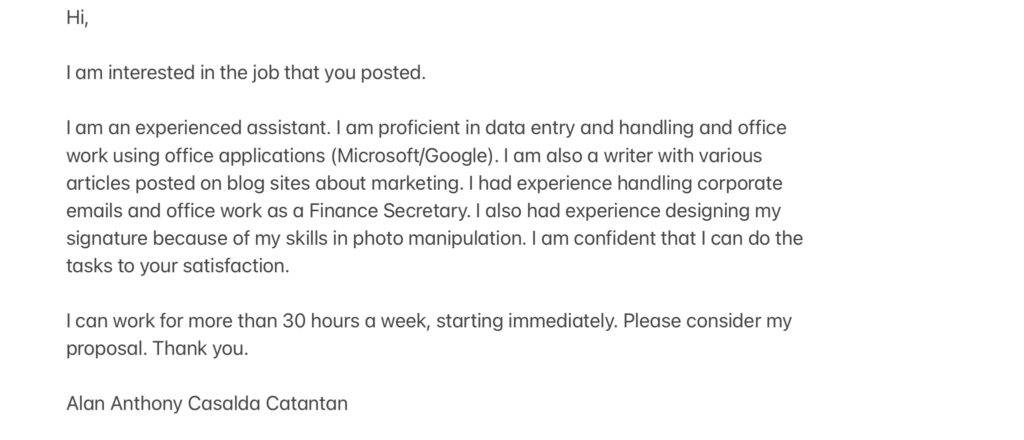As a freelance developer, you probably have seen that freelancing is incredibly competitive right now, especially on freelance platforms. With the freedom and autonomy that it offers, freelancing has been attracting more people since the 2000s. According to the BCG survey, freelancing is the fastest-growing segment of the European labor market. For example, just in the past 10 years freelancing grew by 92% in France and 40% in Spain.
But how do you overcome this competition, especially on freelance platforms where jobs seem so hard to get? In this article, we will help you understand how to succeed on these platforms, what exact steps to take to stand out from competition and how to create a continuous customer flow. Spoiler alert – it takes a lot of time and hard work. However, there is a way to avoid it all, and we will share with you this secret at the end.

Strong profile on freelance platforms
Your profile is the first thing your potential client sees. Make sure you put a lot of thought and effort into it. Fill in as much as possible showcasing your experience and previous projects, add recommendations from your clients, case studies, success stories, etc. Clients face many risks when hiring freelancers, especially if a freelancer has no reviews on his profile, so providing as much proof of credibility as possible will help you tremendously.
Your profile picture is very important as well. A high-quality, professional-looking profile picture can go a long way. Let the photo have a friendly smiling face in the frame. Think also about adding the same image across different channels so that you will be easily recognizable by the clients who do their search.
Try describing your services as a way to solve your potential client’s problem. Here is more information about identifying your ideal client’s wants, needs and fears. Remember that the more to the point your solution is, the better.
Update your profile regularly. Add new projects you’ve worked on and recent success stories you can share with your future clients. Keep it active, and ask all your clients for feedback and review.
Choose your niche
It can be tempting to make your area of expertise wide and include every single thing you are capable of doing. However, it would be best to focus on what you do best and narrow your services to that. Think about your previous work experience. What are those things that you can do better than other freelance developers around you? Focus on them.
You can also look at those developers on the platform who get the highest rates. Analyze what unique services they are providing that you might be interested in learning, then put effort into learning them.
Having a specific niche is a great way to stand out in a crowd.
Be active in applying
When we talk about bidding freelance platforms, a lot is dependent on your active participation in the application process. The more effort you put into sending your application to job postings, the better results you get. Apply, apply, apply! Try setting a goal for yourself, for example, to apply to two job postings a day. Then follow through. The more applications you send the more opportunities you get.
It might be more tempting to fill out that profile and then sit and wait for a job to fall into your lap, but that is not a successful strategy. Choose a proactive approach and make sure you do everything possible to land that client.
Respond fast
It is important to respond fast to messages and interview invitations. Some platforms track your responsiveness and use it to rate your profile. Don’t let that message stay for too long in your inbox. If you are unavailable for some extended period, indicate that on your profile. Being available helps you to stand out among other freelance developers on the platform and can draw more clients to you.
Custom proposals
Creating one generic proposal that you can send to every job posting may sound easier and less time-consuming, but that strategy will not get you anywhere.

Source: workpajama.com
The key to success for proposals on freelance platforms is making them custom to every job posting. When reading a job posting, see what the client wants and what phrases the client uses. Use this information to create a custom proposal tailored to the customer’s needs. Include case studies and success stories relevant to this job posting. Another idea is to add an example (a video, text, screen recording) of your approach to solving the customer’s problem.
Price
It is essential to do market research before you set your price. Look what others are charging for similar work and aim somewhere in the middle. This is a great strategy for beginners to cover your client’s risks when hiring you without reviews. As you successfully complete your first projects and receive your first great reviews, you can start slowly raising your prices so that, with time and experience, you can make the amount of money you wish for (and even more!).
Platform badges
Some freelance platforms have badges to distinguish the best freelancers. Usually, there is a list of actions you can take to receive it.
Find out how to get a badge and aim for it. It will help you get more trust from the clients and will help you stand out from the crowd.
Phone interview
A phone interview usually comes after a successful proposal. This is a place where you win or lose the job. Ask questions about the specifics of the client’s business, the problem they are trying to solve, and previous actions taken to solve it. Use all of this information to tailor your solution for this client. This is where you position yourself as an expert and showcase your knowledge and skills.
High-quality service
This one is probably the most important. No matter how good your profile and portfolio look, no matter how well you sell yourself, the quality of your work will determine your success on the platform. Great job will allow you to work with the same clients in the future and will secure the recommendations from them to other clients (through reviews and word of mouth). So make sure you do your best for every client.
Reviews from clients on freelance platforms
After landing your first job and doing your best work, ask for a review. Reviews on the platform help clients trust you more and offer more opportunities. A mediocre review is better than no review, so don’t be afraid to ask and remind your client to leave a review if they don’t do so right away.
The secret we promised you at the beginning of this article.
Suppose you are reading all of this and feel overwhelmed by the amount of work you need to do to be a successful freelance developer. If you wish you could focus on your work and have someone else do all of the selling and client negotiating for you, there is a way. Lemon.io is a freelance platform that takes on the hustle of finding clients, matching clients with the best developers, and negotiating and managing risks. Unlike many platforms, at Lemon.io, you can focus on doing your best work and leave the rest to a team of dedicated people who make sure both freelancers and clients are happy with the results. Join Lemon.io, a platform that connects developers to startups, and start your freelance journey with us.









